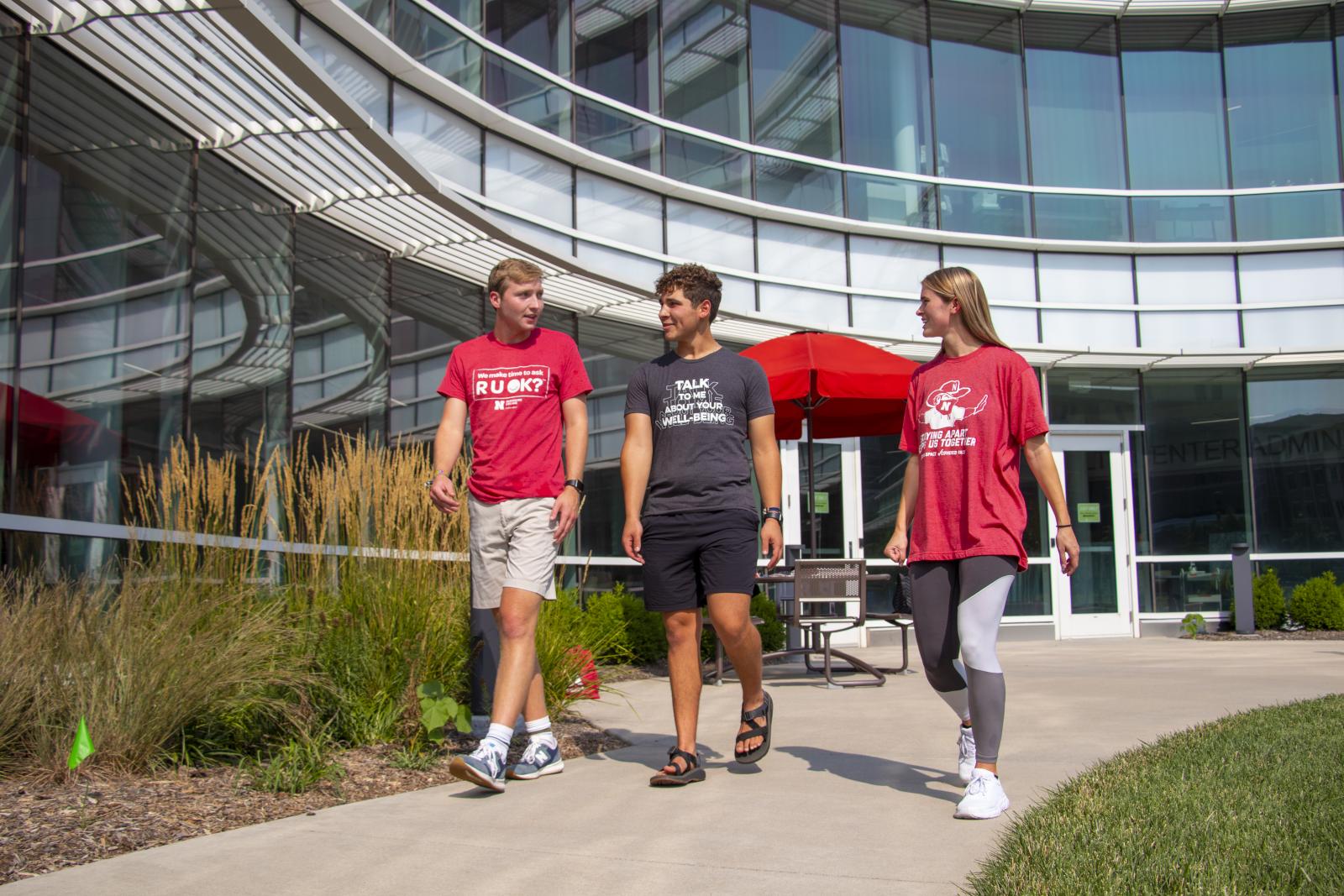Well-being Ambassadors

Find inspiration to flourish in your connections and education.
Well-being Ambassadors will help you build resilience and strengths by using the 8 Dimensions of Well-being model as a framework for generating goals.
Start your journey with a 30-minute one-on-one conversation with a Well-being Ambassador.
Request a Peer Listening Appointment Become a Well-being Ambassador
Meet the Ambassadors
| Counseling | One-on-one Conversations |
|---|---|
| Counseling is a service that supports college students by providing effective treatment for mental health concerns. | One-on-one Conversations with a Well-being Ambassador is a service that supports college students by enhancing holistic well-being, health, and success through empowering conversations about strengths and goals. |
| Counseling center staff are licensed mental health professionals. | Well-being ambassadors are graduate and undergraduate students who have participated in semester-long training as well-being ambassadors. |
| Counseling staff collect information about you and your concerns and work with you to decide how to best address them. Counseling staff will come alongside you on your journey toward resolving or managing these concerns. | Ambassadors believe you are the expert in what you need, and help you identify and trust your distinctive voice so that you can make decisions that are most appropriate for your preferred outcomes. |
Become a Well-being Ambassador
If you’re interested in becoming a Well-being Ambassador, complete the volunteer application. All undergraduate, graduate, and professional students are eligible.
Benefits of being a Well-being Ambassador
- Improve your own well-being
- Develop your communication and listening skills
- Enhance the culture of well-being on campus
Responsibilities
- Meet one-on-one with students
- Support students through the conversation process
- Direct students to campus and community resources, as needed
- Attend weekly meetings with other ambassadors and staff
Qualifications
- Two-semester commitment to volunteer a minimum of 3 hours each week
- GPA of 2.5 or greater
- Strong communication skills, and a passion for educating and helping others
- Applicants must be able to attend the fall semester training and ongoing weekly training
- Previous experience is not necessary





